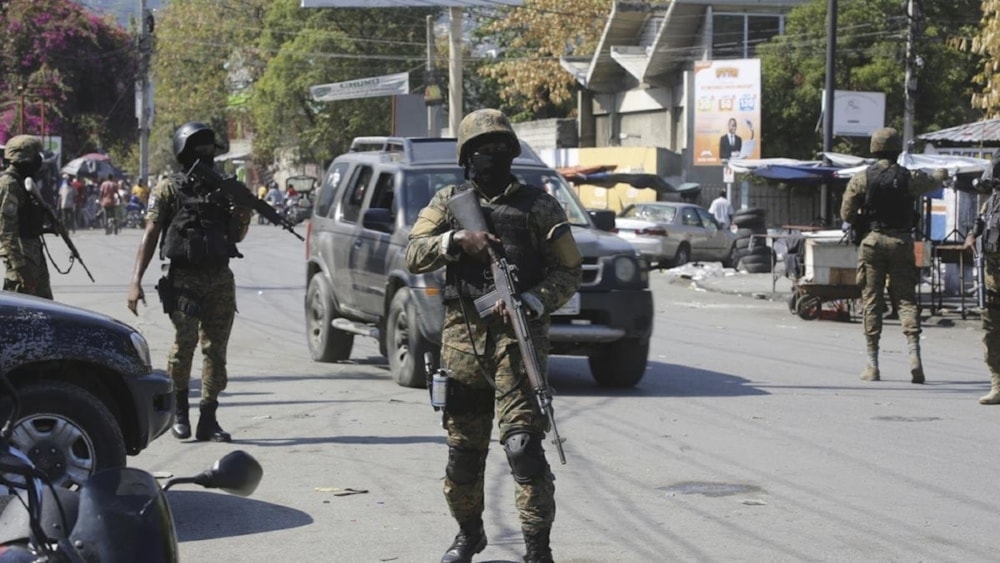Kenya delays Haiti police mission
Kenya has chosen to delay its plans to send police to the crisis-ridden Haiti as part of a multinational mission supported by the United Nations, according to a senior official speaking on Tuesday.
-

Members of the General Security Unit of the National Palace, USGPN, set up a security perimeter around one of the three downtown stations after police fought off an attack by gangs the day before, in Port-au-Prince, Haiti, on March 9, 2024. (AFP)
Kenya has opted to postpone its plans to deploy police to the crisis-stricken Haiti as part of a UN-supported multinational mission, a senior official revealed on Tuesday.
The decision followed an announcement by Haiti's Prime Minister Ariel Henry that he had consented to relinquish his position due to the widespread control exerted by armed gangs across much of the Caribbean nation.
"There has been a fundamental change in circumstances as a result of the complete breakdown of law and order and the subsequent resignation of the PM of Haiti," Korir Sing'oei, principal secretary for foreign affairs said, as quoted by AFP.
"Without a political administration in Haiti, there is no anchor on which a police deployment can rest, hence government will await the installation of a new constitutional authority in Haiti, before taking further decisions on the matter," he added.
Sing'oei emphasized, however, that Kenya's dedication to "leading the MSS" remained steadfast, alluding to the Multinational Security Support mission endorsed by the UN Security Council in October of the previous year.
Dive deeper
Simultaneously, the United States downplayed Kenya's declaration of suspending the police mission to Haiti, claiming that a transition agreement would facilitate the establishment of a new government, consistent with Nairobi's desires.
US State Department spokesperson Matthew Miller said, "I would be concerned of course about any delay, but we don't think that there will need to be a delay."
"It's a perfectly natural thing to expect that they want to know that there's a government that can host them, that can make a request for them to deploy a mission," Miller said of Kenya.
Miller expressed that the establishment of the new transitional council should occur "in the very near future," facilitating the unimpeded progress of the mission. He further mentioned that the transitional council, responsible for appointing a prime minister and cabinet preceding elections, should be formed within the next 24 to 48 hours. Miller commended Henry's resignation, noting that he had discussed his decision with Secretary of State Antony Blinken on Monday.
The big picture
In recent weeks, the crisis in Haiti has escalated into further violence, with bodies littering the streets, armed gangs looting essential infrastructure, and concerns mounting over the possibility of famine.
Kenya had expressed its readiness to deploy up to 1,000 personnel to Haiti, a gesture welcomed by the United States and other countries that have opted against sending their own troops to the region. However, legal obstacles have impeded the planned mission.
In January, Kenya's High Court ruled that the National Security Council, which sanctioned the deployment, only holds the authority to dispatch the military abroad, not police officers. The judge stipulated that Kenya could send police to another country only if a mutual agreement exists.
On March 1, such an agreement was signed in the presence of Kenyan President William Ruto and Haitian Prime Minister Henry. Nevertheless, an opposition politician who challenged the deployment in the Nairobi High Court has vowed to initiate a fresh legal challenge.
Read next: US extends tentacles of interference to Haiti under peacekeeping guise

 3 Min Read
3 Min Read








